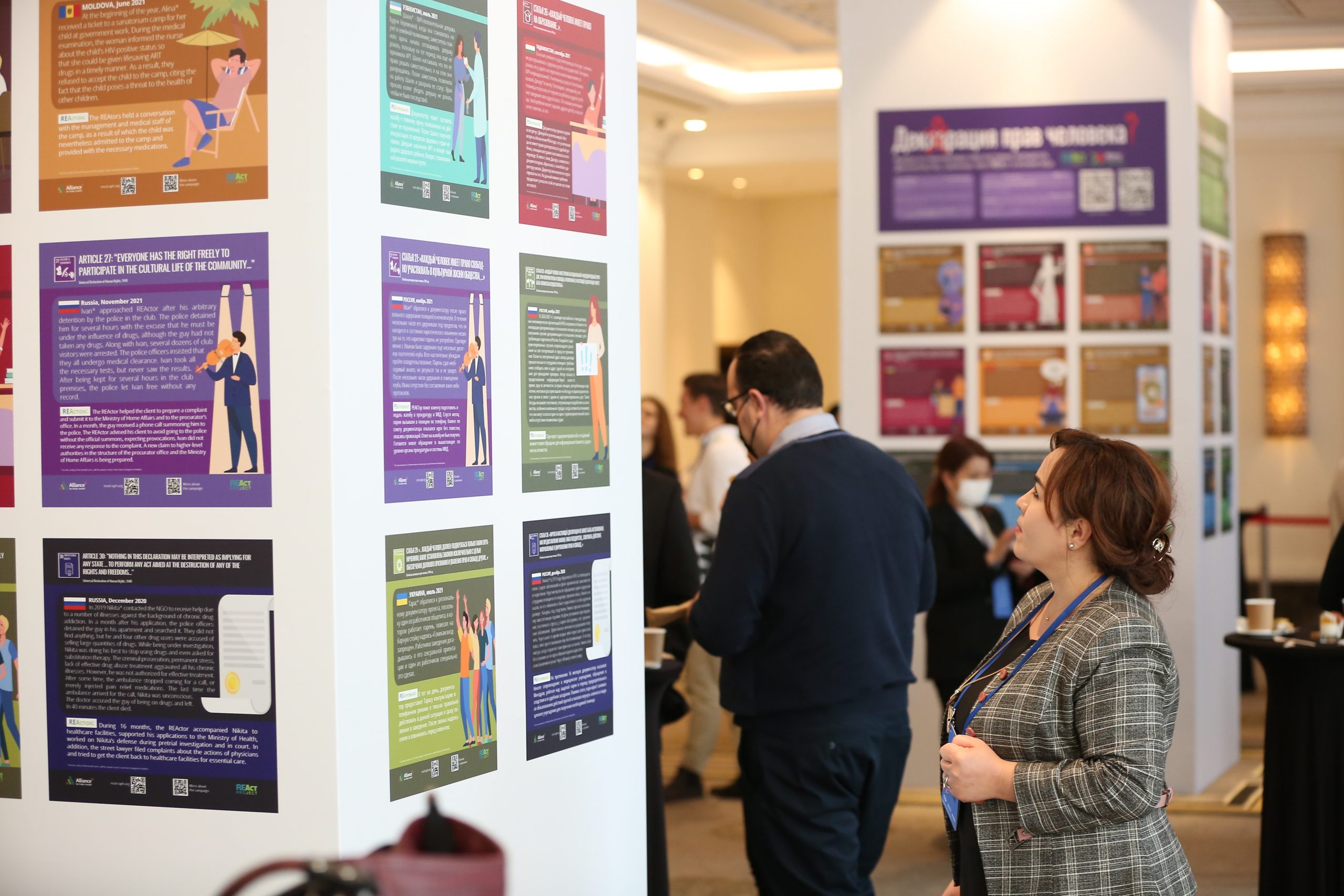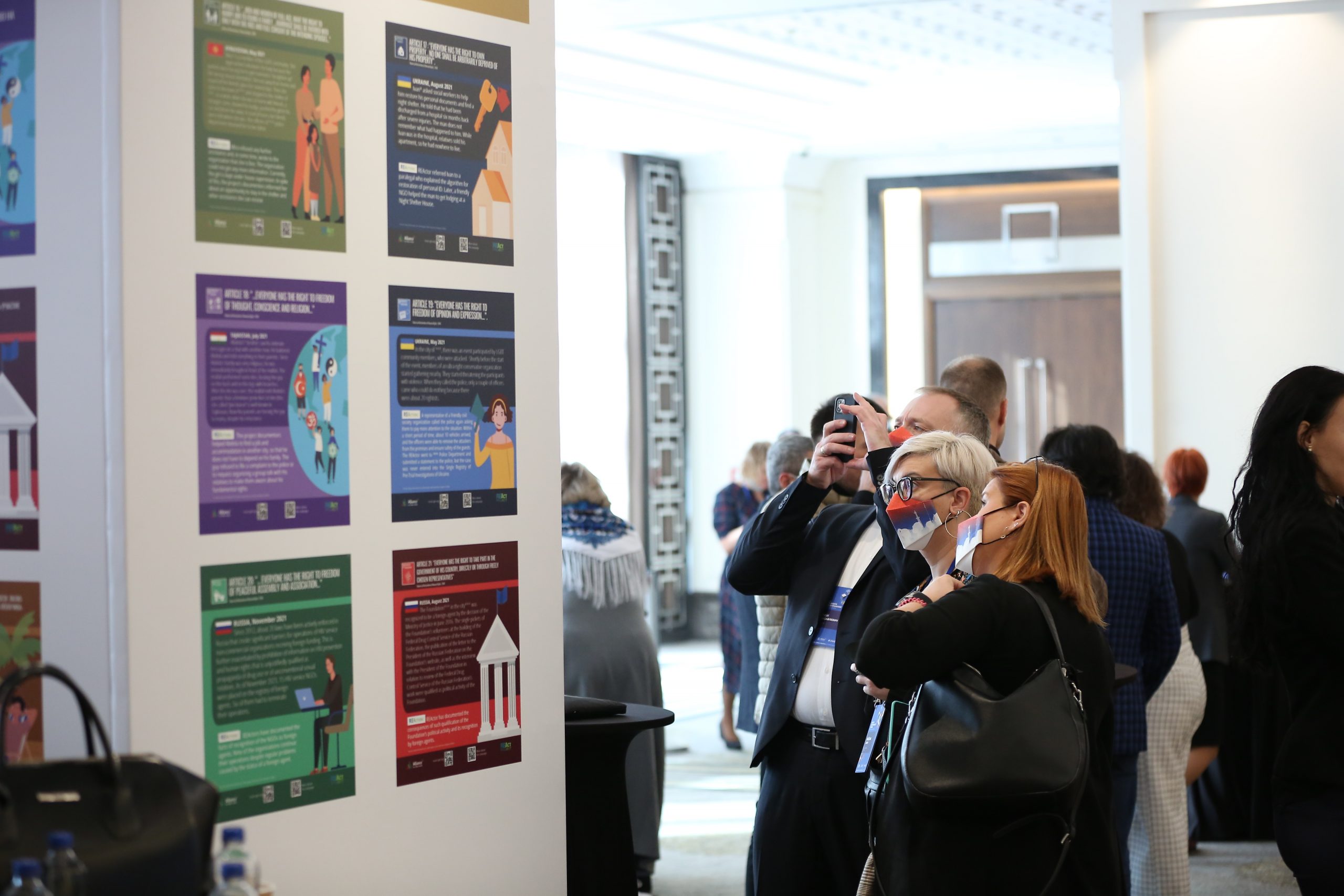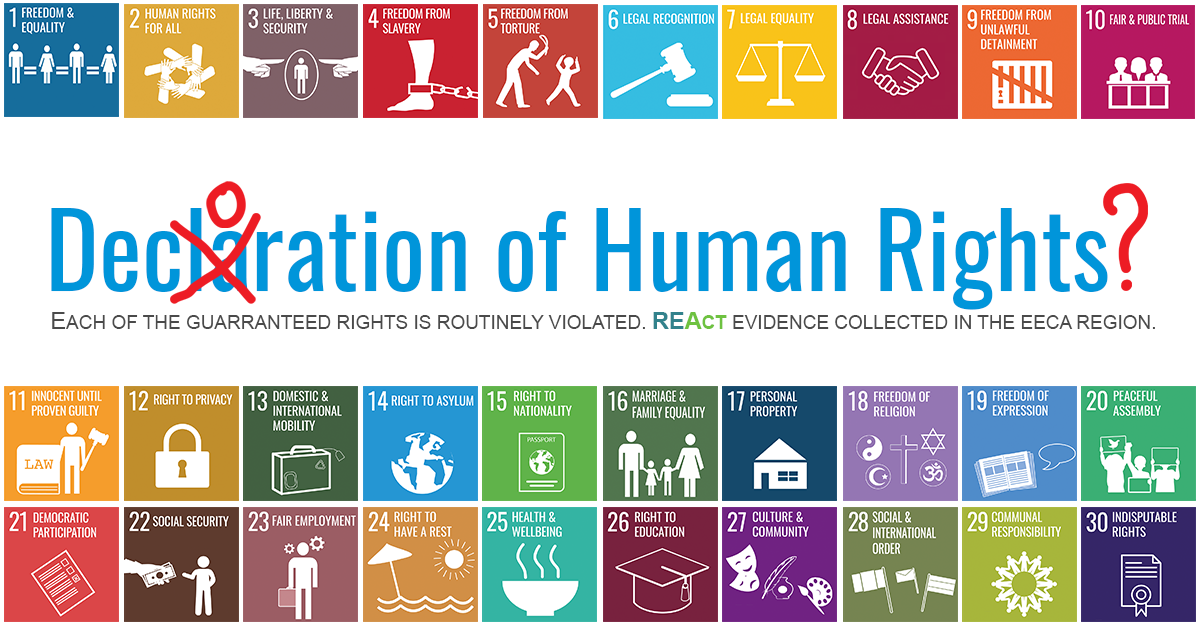On December 10, the world celebrates Human Rights Day, as exactly on this day in 1948 a milestone document was signed – the Universal Declaration of Human Rights. But, after 73 years, are the rights and freedoms proclaimed in the Declaration guaranteed in practice? We analyze it in the material below.
The ICF “Alliance for Public Health” has launched a regional information campaign “Declaration or Decoration of Human Rights?” to draw public attention to the glaring number and variety of human rights violations in the region of Eastern Europe and Central Asia, especially concerning the most marginalized groups of society vulnerable to HIV and tuberculosis.
The COVID-19 pandemic has worsened the human rights situation in the region: during 2020-2021 the REAct system registered more than 6,000 cases of violation of rights, stigma, and discrimination in 7 countries.
“The evidence collected reveals the legal barriers, harassment, and criminalization of HIV-vulnerable populations. This makes it difficult or impossible for them to access health services, prevention and treatment of HIV, tuberculosis and other diseases. ” – states Andrey Klepikov, executive director of the ICF “Alliance for Public Health”.
“Declaration or Decoration of Human Rights?” information campaign, based on evidence collected through REAct and the 30 articles of the Universal Declaration of Human Rights, illustrates that the rights of vulnerable groups continue to be violated ubiquitous in practice.
Campaign offline presentation in Istanbul within Health Sustainability Forum








“According to REAct data, the main violators of rights in the EECA region are representatives of state institutions – medical professionals, police, courts. Since it was the states that proclaimed their commitment to respect, protection, and promotion of human rights and freedoms by signing the Declaration. It is the states, through their state institutions and state structures, that must protect and guarantee human rights, and not vice versa – violate them. “ – Andrey Klepikov declares.
The most common offenses are discrimination, misconduct, law enforcement violence, denial of access to health services, disclosure of health information and stigma from health care workers, physical violence against women by sexual partners and relatives, as well as by police officers.
“Analyzing the cases in REAct, we saw that there is no area of life in which representatives of communities would not face stigma, discrimination, or infringement of their rights. Not only are human rights violated all the time, but it is also widespread. The info campaign just illustrates this. It was not difficult for us to find examples of violations from real-life under each of the thirty articles of the Declaration. And under the “hottest” articles like the right to freedom from cruel and inhuman treatment and torture, the right to freedom from arbitrary detention, we had to tearfully choose the loudest cases among hundreds of others … “- Coordinator of the REACT system in Eastern Europe and Central Asia and author of the campaign idea, Victoria Kalynyuk shares her impressions.


